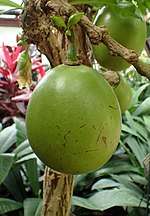boch
Cimbrian
Alternative forms
- bòcha (Sette Comuni)
Etymology
From Middle High German woche, from Old High German wohha, an alteration of wehha, from Proto-Germanic *wikǭ (“sequence; week”). Cognate with German Woche, Dutch week, English week, Icelandic vika.
References
- “boch” in Patuzzi, Umberto, ed., (2013) Ünsarne Börtar [Our Words], Luserna, Italy: Comitato unitario delle linguistiche storiche germaniche in Italia / Einheitskomitee der historischen deutschen Sprachinseln in Italien
Tzotzil
_3.jpg) boch |
 boch |
FWOTD – 14 March 2017
Pronunciation
- (Zinacantán) IPA(key): [ɓɔt͡ɕʰ]
Derived terms
- pisis boch teʼ
References
- “boč” in Laughlin, Robert M. (1975) The Great Tzotzil Dictionary of San Lorenzo Zinacantán. Washington: Smithsonian Institution Press.
Welsh
Etymology
From Proto-Brythonic *box, borrowed from Latin bucca (“cheek”). Cognate with Cornish bogh (“cheek”), Breton boc'h (“cheek”), Scottish Gaelic bòc (“surge, swell”).
Pronunciation
- IPA(key): /boːχ/
Synonyms
Derived terms
- bochyn m, bochig f (diminutive)
Mutation
| Welsh mutation | |||
|---|---|---|---|
| radical | soft | nasal | aspirate |
| boch | foch | moch | unchanged |
| Note: Some of these forms may be hypothetical. Not every possible mutated form of every word actually occurs. | |||
References
- Angharad Fychan and Ann Parry Owen, editors (2014), “boch”, in Geiriadur Prifysgol Cymru Online (in Welsh), University of Wales Centre for Advanced Welsh & Celtic Studies
This article is issued from
Wiktionary.
The text is licensed under Creative
Commons - Attribution - Sharealike.
Additional terms may apply for the media files.